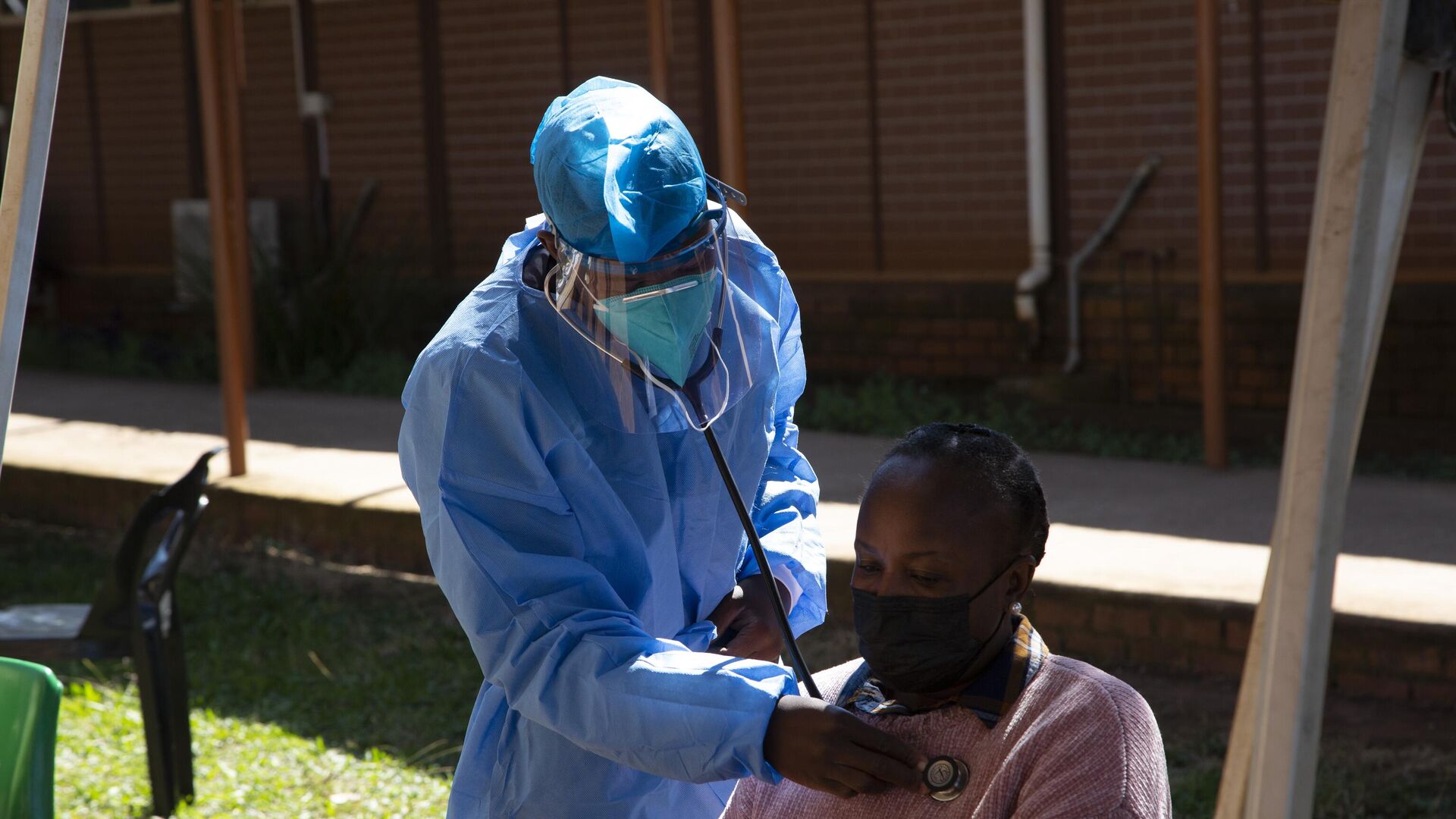Third Mpox Fatality Hits South Africa, Health Ministry Says
15:35 26.06.2024 (Updated: 16:31 26.06.2024)

© AP Photo / Denis Farrell
Subscribe
All cases are men aged 30-39 who have not traveled to countries affected by the outbreak. This indicates that the disease is spreading locally, according to the South African Department of Health.
South Africa has recorded its third death from the viral virus mpox, the country's health ministry announced on Tuesday.
The government said a 40-year-old man from KwaZulu-Natal province died after developing symptoms similar to mpox, including a full-body rash.
"He passed on at home, and the results came back positive for mpox on the 23rd June 2024," the statement said.
The other two new cases were confirmed in the province of Gauteng. The 29-year-old male patient was diagnosed at a health facility in Mamelodi on June 21. The 43-year-old man was diagnosed at a private medical facility in Johannesburg on June 22.
“The department, working with provinces and other stakeholders in the sector, has embarked on health education with funeral parlors on how to handle the human remains … due to suspected and confirmed mpox,” the department said.
Maintaining good hand hygiene can effectively prevent the spread of the disease. The health department reminded people to wash their hands, especially before eating or touching their faces, and to use an alcohol-based hand sanitizer after using the bathroom.
“Some of the common symptoms of mpox include a rash, which may last for two to four weeks, fever, headache, muscle aches, back pain, low energy, and swollen glands (lymph nodes),” the department noted. “The painful rash looks like blisters or sores and can affect the face, palms of the hands, soles of the feet, groin, etc.”
Last week, the first batch of treatment tailored to mpox was received, according to the agency. Patients who develop serious health problems as a result of mpox are treated with tecovirimat (also known as TPOXX or ST-246).
The health department announced that it was obtaining additional measles vaccinations and medication and that all mild cases would still be treated with supportive care for skin infections, fever, and pneumonia.
The health department announced that it was obtaining additional measles vaccinations and medication and that all mild cases would still be treated with supportive care for skin infections, fever, and pneumonia.
An epidemic that began in May has resulted in 16 laboratory-confirmed cases to date.
Mpox is a very rare virus found mostly in remote parts of Central and West Africa that are close to jungles. The first case of the disease being passed from an animal to a human was found in the Democratic Republic of the Congo in 1970.
In 2022, mpox caused a global epidemic that spread to more than 100 countries. Waves of infections showed up in places like the US, the UK, Sweden, and Belgium that had never had the virus before. During the global outbreak, the US, Brazil, Spain, France, Colombia, Mexico, Peru, and the UK had the most cases.
WHO says that mice, monkeys, and other wild animals can spread the virus to people. It can also be passed from person to person through body fluids, sores on the skin, or surfaces of the digestive tract. The death rate from mpox attacks is between 1% and 10%.
WHO says that mice, monkeys, and other wild animals can spread the virus to people. It can also be passed from person to person through body fluids, sores on the skin, or surfaces of the digestive tract. The death rate from mpox attacks is between 1% and 10%.
